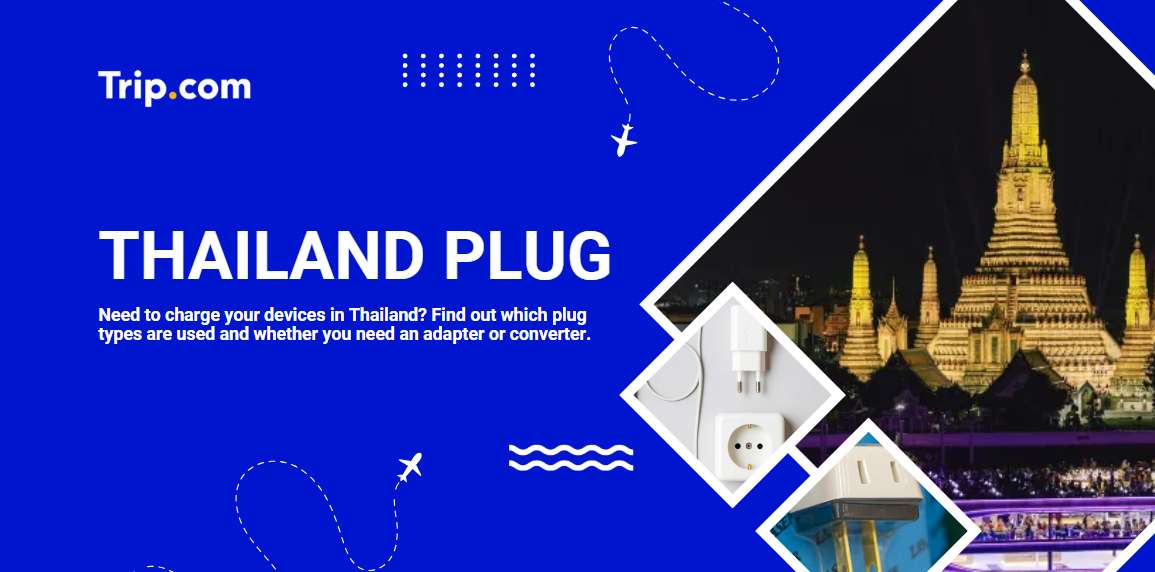
Planning a trip to Thailand and not sure how to charge your devices? Unlike Indonesia, which mostly uses Type C and F plugs, Thailand commonly uses Type A, B, C, and O. That means your Indonesian chargers might not always fit Thai outlets. In this guide, we’ll break down Thailand’s plug types, recommend the right adapters to bring, share essential safety tips, and help ensure you stay powered up throughout your Thai getaway. Keep reading to get fully plugged in before you go!
Deals & promotions collection: Get up to 8% off on hotel bookings
📱Get Connected in Bangkok
Bangkok eSIM from Rp 72,156
🙋Must-visit Attractions in Bangkok
Sea Life Bangkok Ocean World ticket from Rp 465,721
Safari World Bangkok ticket from Rp 339,535
💓One-day tour in Bangkok
The Grand Palace + Wat Arun+ Wat Paknam Phasi Charoen! Only Rp 863,478
Damnoen Saduak Market and Maeklong Rail Day Tour! Only Rp 546,377
Grand Palace + Wat Phra Kaew + Wat Arun + Chao Phraya River! Only Rp 1,720,931
Damnoen Saduak Floating Market + Maeklong Railway Market + Tree Temple! Only Rp 642,750
Thailand plug type
(Source: thaisims.com)
Thailand mainly uses the following plug types:
Type A – Features two flat, parallel pins and is commonly found in North and Central America.
Type B – Similar to Type A but includes a third round grounding pin for added safety.
Type C – Known as the Europlug, it has two round pins and is widely used across Europe and parts of Asia, including Indonesia.
Type O – Unique to Thailand, this plug type has three round pins arranged in a triangular shape and supports higher currents.
Comparison of Thailand power plug
Feature | Type A | Type B | Type C | Type O |
Pin Design | Two flat, parallel pins | Two flat, parallel pins with a round grounding pin | Two round pins | Three round pins arranged in a triangle |
Grounding | Not grounded | Grounded | Not grounded | Grounded |
Common Regions | Widely used in North America and Japan | North America, Canada, and parts of Central America | Common across Europe, Asia, and South America | Exclusive to Thailand |
Thailand Power Plug Voltage and Frequency
Thailand’s electrical system operates on a standard voltage of 220V and a frequency of 50Hz. This is the same as in Indonesia, so most Indonesian electronic devices should work without any issues in Thailand. However, it's still important to check your device labels to ensure they support 220V and 50Hz, or are marked as dual-voltage, to avoid any potential damage.
Thailand plug: Adapters and converters for travelling Thailand
Plug Adapter: A plug adapter is a handy tool that lets you fit your Indonesian plug into a Thai power socket. It doesn’t convert electricity—it simply adjusts the plug shape so it fits the outlet.
Voltage Converter: Unlike an adapter, a voltage converter actually changes the electrical voltage from the outlet to match what your device needs. This is crucial if your electronics aren’t compatible with Thailand’s 220V power supply, as it helps prevent overheating or permanent damage.
Do you need a travel adapter in Thailand?
Yes, you may need a plug adapter. While both Indonesia and Thailand commonly use Type C plugs, Thailand also uses Type A, B, and O sockets. If your device has a plug that doesn't match these socket types, bringing a universal adapter is recommended to ensure compatibility.
Do you need a voltage converter in Thailand?
Not usually. Indonesia and Thailand both operate on a 220V, 50Hz electrical system, so most Indonesian devices will work just fine. However, if you’re bringing a device that only supports 110V (uncommon in Indonesia but possible with imported electronics), then you’ll need a voltage converter to avoid damaging your equipment.
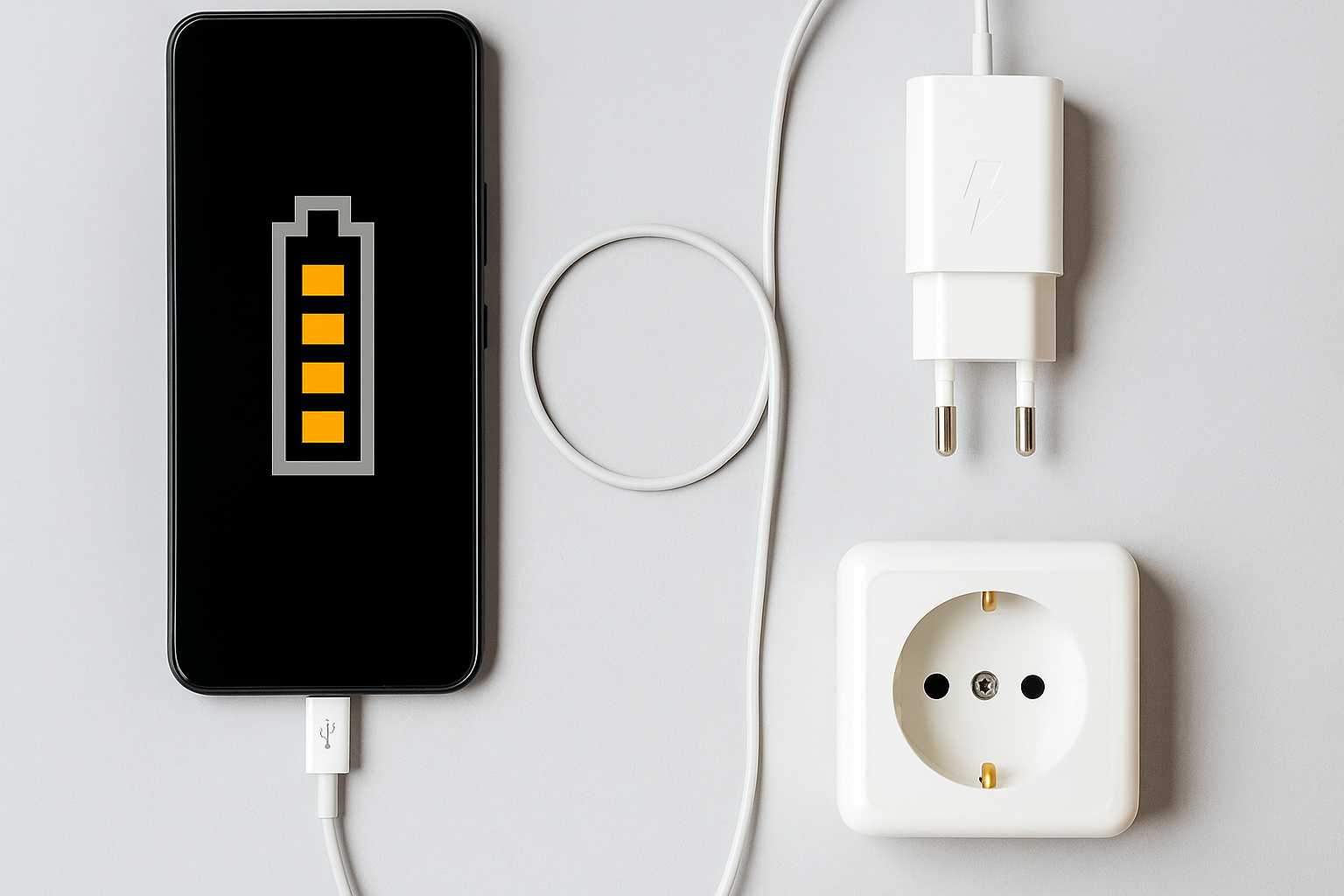
How to Use Travel Adapters and Voltage Converters in Thailand
Using a Travel Adapter:
- Connect your device to the adapter by plugging it in.
- Insert the adapter into a power outlet in Thailand.
- Check that it’s firmly connected before turning on or using your device.
Using a Voltage Converter:
- Plug your device into the voltage converter.
- Insert the converter into the wall socket.
- Make sure the voltage setting on the converter matches what your device needs before switching it on.
Safety Tips When Charging in Thailand
- Always verify voltage compatibility — most devices today are dual-voltage, but double-check to avoid damage.
- Don’t overload a socket by plugging in too many devices at once.
- Use a surge protector if you’re charging several electronics together, especially laptops and phones.
- Monitor your devices while charging and unplug them once fully charged to avoid overheating.
Where to buy Thailand adapters in Indonesia?
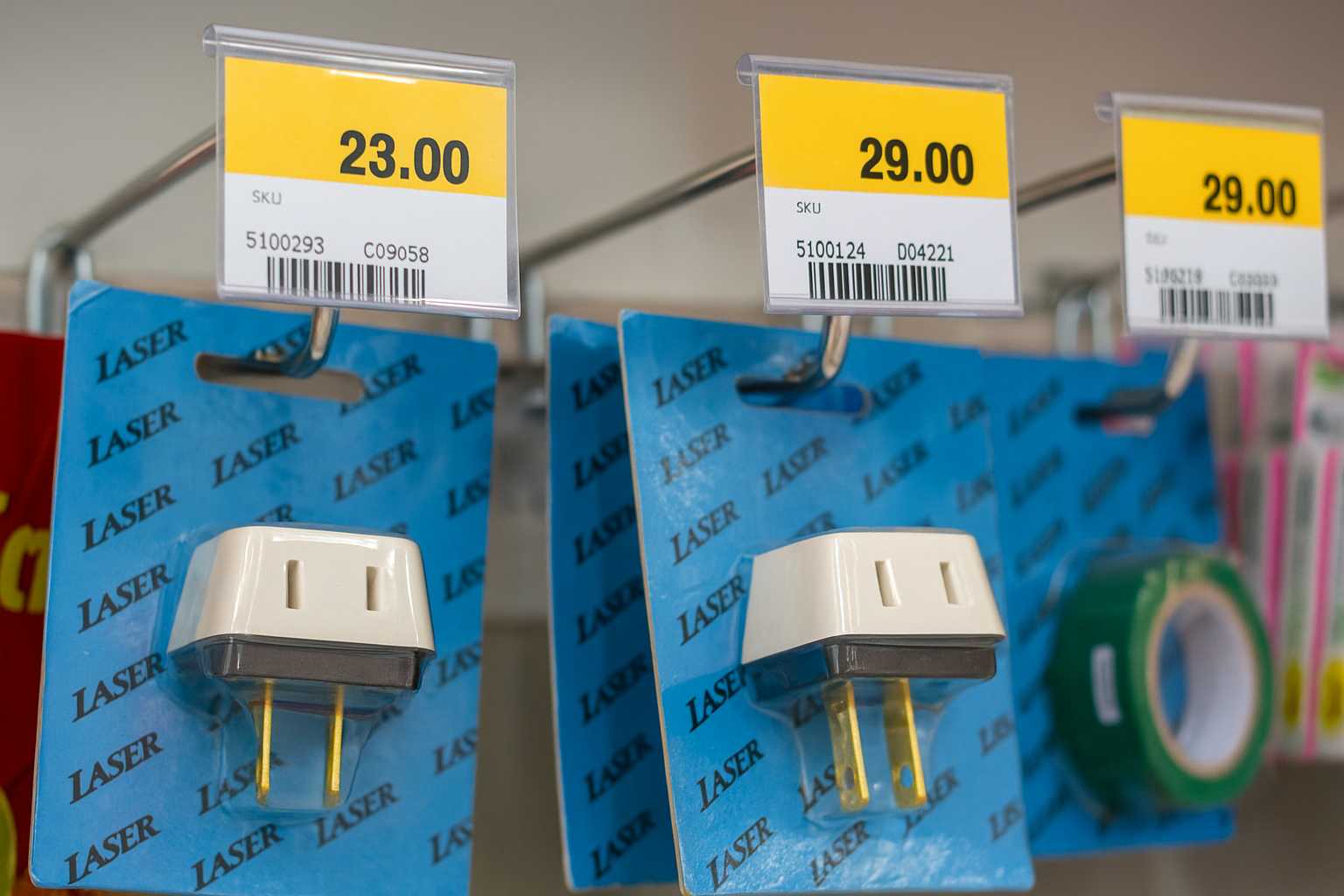
Where to Buy Thailand Travel Adapters in Indonesia
Electronics Stores: Large retailers like Electronic City, Hartono Elektronika, and Best Denki Indonesia often carry international travel adapters, including those compatible with Thai sockets.
Supermarkets: Stores such as Hypermart, Carrefour, or Transmart may stock basic plug adapters in their electronics section.
Online Platforms: You can easily order from Tokopedia, Shopee Indonesia, Blibli, or Lazada Indonesia for delivery straight to your home before the trip.
Where to charge easily in Thailand?
(Source: pond5.com)
Where to Charge Your Devices in Thailand
Airports: Most Thai airports have free charging stations near gates and lounges.
Cafés & Restaurants: Many places offer power outlets at tables, including Starbucks and local cafés.
Shopping Malls: Malls like Siam Paragon and CentralWorld have charging spots in common areas and food courts.
Hotels: Most hotels provide charging points in rooms, usually near the bed or desk.
Coworking Spaces: Great for digital nomads — places like The Hive or True Digital Park have plenty of charging stations and fast Wi-Fi.
Global Electrical Standards Overview
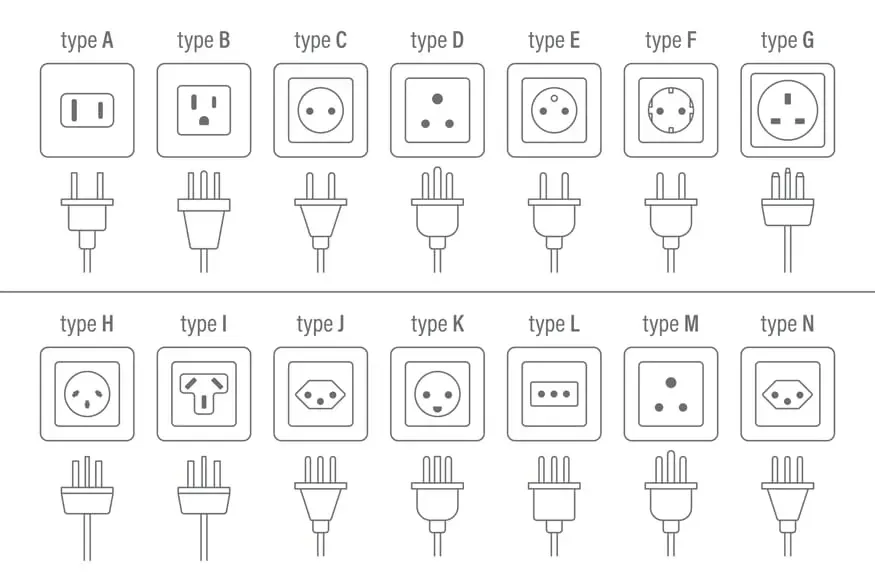
Around the world, there are three primary electrical standards for devices. The first is 110-120V, which is mainly found in North and Central America. The second is 220-240V, common in Europe, Asia, and Oceania. Lastly, there's the dual-voltage system. In addition to voltage, these standards vary in frequency, either 50 Hz or 60 Hz, and feature different plug types unique to each area. Knowing these variations is crucial for the safe use of electronic devices when traveling abroad.
Asia & Oceania electrical standards
Country | Frequency (Hz) | Voltage (Volts) | Plug Type |
Australia | 50 | 230 | I |
China (Hong Kong S.A.R.) | 50 | 220 | G |
China (Taiwan) | 60 | 110 | A, B |
India | 50 | 230 | C, D, M |
Indonesia | 50 | 230 | C, F |
New Zealand | 50 | 230 | I |
Philippines | 60 | 230 | A, B, C |
Singapore | 50 | 230 | G |
Thailand | 50 | 220 | A, B, C |
Vietnam | 50 | 220 | A, C |
South Korea | 60 | 220 | C, F |
Malaysia | 50 | 240 | G |
North America & South America electrical standards
Country | Frequency (Hz) | Voltage (Volts) | Plug Type |
Argentina | 50 | 220 | C, I |
Brazil | 60 | 127/220 | C, N |
Canada | 60 | 120 | A, B |
Chile | 50 | 220 | C, L |
Colombia | 60 | 120 | A, B |
Mexico | 60 | 127 | A, B |
Peru | 60 | 220 | A, C |
USA | 60 | 120 | A, B |
Venezuela | 60 | 120 | A, B |
Europe electrical standards
Country | Frequency (Hz) | Voltage (Volts) | Plug Type |
France | 50 | 230 | C, E |
Germany | 50 | 230 | C, F |
Italy | 50 | 230 | C, F, L |
Russia | 50 | 230 | C, F |
Spain | 50 | 230 | C, F |
United Kingdom | 50 | 230 | G |
Oceania electrical standards
Country | Frequency (Hz) | Voltage (Volts) | Plug Type |
Australia | 50 | 230 | I |
Fiji | 50 | 240 | I |
New Zealand | 50 | 230 | I |
Stay Connected in Thailand!
Travel Tips for Indonesians in Thailand
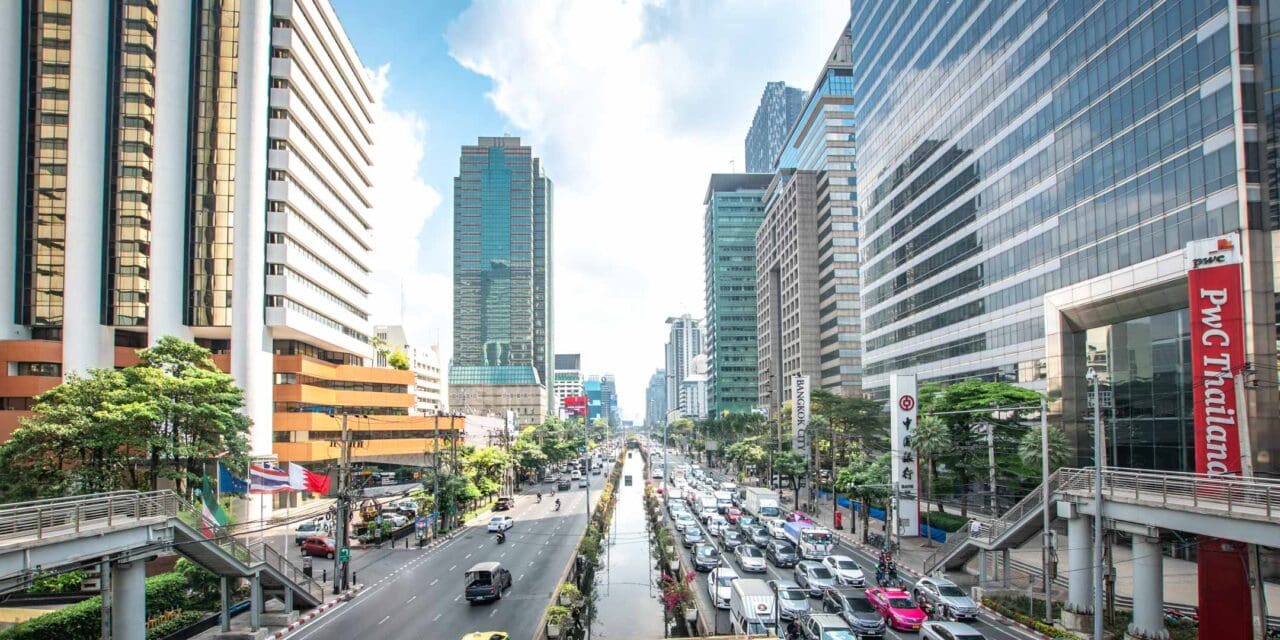
🚗 Public Transport: Use Grab for ride-hailing—it’s widely used in Thailand. For trains like the BTS Skytrain or MRT, and local buses, apps like Moovit or Transit Bangkok can help you navigate routes and schedules easily.
📶 Stay Connected: Avoid roaming charges by getting a Thailand eSIM or prepaid SIM card at the airport, 7-Eleven, or mobile stores. Providers like AIS, TrueMove H, and DTAC offer affordable tourist data packages.
💳 Payments: Cash is still commonly used, especially in markets and small shops. However, cashless payments are growing in major cities. Set up GrabPay, TrueMoney Wallet, or bring a Visa/Mastercard debit card for convenience.
🌐 Internet Access: Thailand offers open and reliable internet. Free Wi-Fi is available in most hotels, cafes, and shopping malls. For more consistent access while traveling, consider renting a pocket Wi-Fi or using a solid data plan.
With the right prep, your trip to Thailand will be smooth, connected, and stress-free! ✨
Deals & promotions collection: Get up to 8% off on hotel bookings
📱Get Connected in Bangkok
Bangkok eSIM from Rp 72,156
🙋Must-visit Attractions in Bangkok
Sea Life Bangkok Ocean World ticket from Rp 465,721
Safari World Bangkok ticket from Rp 339,535
💓One-day tour in Bangkok
The Grand Palace + Wat Arun+ Wat Paknam Phasi Charoen! Only Rp 863,478
Damnoen Saduak Market and Maeklong Rail Day Tour! Only Rp 546,377
Grand Palace + Wat Phra Kaew + Wat Arun + Chao Phraya River! Only Rp 1,720,931
Damnoen Saduak Floating Market + Maeklong Railway Market + Tree Temple! Only Rp 642,750
FAQs: Thailand Plug
What plug types are used in Thailand?
Thailand mainly uses Type A, B, C, and O plugsWhat is the voltage and frequency in Thailand?
Voltage: 220V. Frequency: 50Hz This is the same as in Indonesia, so most Indonesian devices will work fine.Do I need a travel adapter in Thailand?
Yes, if your plug doesn’t match Thai socket types. A universal adapter is the safest choiceDo I need a voltage converter?
Not usually. Indonesian devices are typically compatible with 220V. However, check your device label—if it only supports 110V, you’ll need a voltage converter.Can I buy an adapter in Thailand?
Yes! You can find them easily at 7-Eleven, supermarkets, convenience stores, Power Buy, or airport shops.Is it safe to use multi-plug extensions in Thailand?
Yes, but avoid overloading. For safety, use a surge protector, especially when charging multiple devices.Are USB charging ports common?
Yes. Many hotels, airports, cafés, and public places have USB ports or charging stations.

